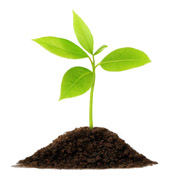Agronomy and Horticulture, Department of
Plant and Soil Sciences eLibrary
Evolution
Document Type
Learning Object
Date of this Version
2011
Citation
Plant and Soil Sciences eLibrary (PASSeL) Lesson
Abstract
This lesson describes an evolution story that is unfolding today in farmers’ fields around the world.
Introduction
The same abiotic (nonliving) factors that support the growth of crop plants are needed by weeds, the plants that farmers do not want to grow. Crops and weeds are therefore competitors in the crop field ecosystem. Controlling weeds is an age-old problem for the farmer, and the nature of evolution suggests that most solutions to weed management will be temporary.
Modules:
COinS



Comments
Copyright © 2011 Plant and Soil Sciences eLibrary. Used by permission.
This project was supported in part by the National Research Initiative Competitive Grants CAP project 2011-68002-30029 from the USDA National Institute of Food and Agriculture, administered by the University of California-Davis and by the National Science Foundation (NSF), Division of Undergraduate Education, National SMETE Digital Library Program, Award #0938034, administered by the University of Nebraska. Any opinions, findings, conclusions, or recommendations expressed in this publication are those of the author(s) and do not necessarily reflect the views of the USDA or NSF.